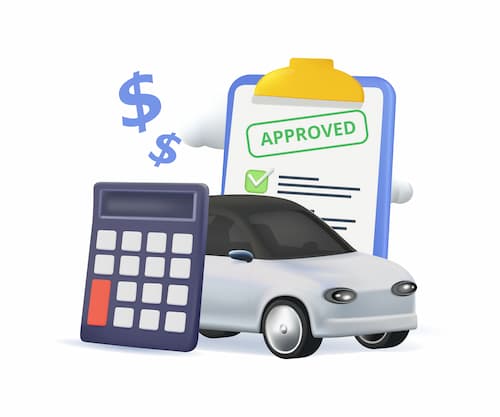- What is snowbird car insurance?
- How do snowbirds handle car insurance?
- Can you have car insurance in a different state than your registration?
- Can a snowbird register a car in Florida?
- What do you need to register a car in Florida?
- How much insurance does a snowbird need in Florida or Arizona?
- Do snowbirds have to insure their car in other states?
- Can I buy temporary car insurance in another state?
- Snowbirds' car insurance requirements
- What happens if I don't insure my car at my vacation home?
- Are there snowbird-specific car insurance discounts?
- Tips to save money on auto insurance as a snowbird
- FAQ: Snowbirds car insurance
What is snowbird car insurance?
The term snowbird refers to individuals – typically retired – who travel south from the northern part of the country for the winter. Snowbird insurance is car insurance for vehicle owners who live in a northern state but spend the winter months at a second home in warmer areas such as Florida or Arizona.
That home could be a vacation rental, a home the person owns or even a timeshare. There's no difference in terms of the insurance policy itself, but rather how coverage works when you spend a long period away from the state where your car is registered. It is important to inform your insurance provider about your snowbird status and ensure adequate coverage. Snowbird car insurance may differ from vacation car insurance for a shorter trip.
How do snowbirds handle car insurance?
Snowbirds may either use the car insurance policy they have purchased in their state of primary residence, or they may buy car insurance in the state where they spend the winter.
Which option to choose depends on the laws in the state where you spend the summer and how long you plan to be there. We'll cover two common snowbird locations below, but if you head to a different state for the winter, you'll need to check on the rules there.
Can you have car insurance in a different state than your registration?
Insurance companies generally require your car to be insured in the state where it is registered and where you primarily use it. When you move to a different state, you must usually register your car and obtain insurance in that new state.
However, when you are a part-time resident of more than one state, it can become complicated. State laws regarding auto insurance and vehicle registration vary. In Florida, if you stay for 90 days, you must register your car and get Florida car insurance. However, if you live in Arizona for less than seven months a year, you're classified as a part-time resident, and you don't have to register your vehicle in Arizona.
People ask
I have two homes; where do I register my car?
The answer depends on how long you spend in each home and the laws in the states where your homes are located. In most cases, you can register your car in the state where you spend most of your time; that would be considered your primary residence. Florida's insurance requirements kick in when you live there for 90 days.
Can a snowbird register a car in Florida?
In Florida, if you have a car in the state for more than 90 days each year — and those days don't have to be consecutive — you have to comply with Florida's registration requirements.
Do you have to have a Florida license to register a car in Florida? You can register a car in Florida even if you have an out-of-state license, but you will need to provide the garaging address and proof of a Florida car insurance policy.
TIP“It’s better if you do the calculations yourself or hire an independent appraiser simply because your home insurer determines your replacement cost based on their own software without really doing a proper inspection of your home to give an accurate estimate. A home insurance company may not be in your best interest,” Brandon says.
If you’re driving south for the winter, you might want to look at all your insurance options. “There are special coverages such as trip interruption, roadside and theft of personal property,” says Jimmi Lewis of the Voi Insurance Solutions insurance agency. “Trip interruption coverage can pay for expenses such as hotel and food if your vehicle breaks down. … Roadside assistance is a no brainer. And since regular auto policies do not provide any coverage for your personal belongings in your car, personal property coverage can help.”
Canadian snowbirds heading to Florida may face more complications. Canadian insurance is valid in the U.S., but you will come up against Florida's law about registration if you are there for more than 90 days. If you need to get a Florida insurance policy, you should speak with a local insurance agent who is familiar with the process for Canadians.
What do you need to register a car in Florida?
To register a vehicle that’s titled out of state, you’ll need:
- The out-of-state title
- A completed HSMV 82040 application for a certificate of title
- A copy of your driver’s license or passport
- Proof of Florida car insurance
- The bill of sale
How much insurance does a snowbird need in Florida or Arizona?
Every state sets minimum insurance standards. Arizona and Florida have some of the least stringent requirements.
Under Florida law, to drive legally, you'll need to have at least $10,000 in personal injury protection (PIP) and $10,000 in property damage liability coverage.
To meet Arizona car insurance law, you'll need to have at least $25,000 in bodily injury liability coverageThis auto insurance coverage helps pay for medical expenses and lost wages if you injure someone in a car accident. It also covers legal fees if you're sued. for one person and $50,000 for two or more people. You'll also need to have at least $15,000 in property damage liability coverage.
Your home state likely has higher minimum requirements than Florida and Arizona do. (See what levels of coverage drivers like you typically buy using Insurance.com’s auto insurance coverage calculator.) Plus, snowbirds with significant assets should consider bumping up their coverage limits. Florida and Arizona’s minimum coverage requirements are not enough to protect you in case of a serious accident or lawsuit. Skimping could cost you your savings and homes.
The senior driver discounts in Florida and Arizona may be a little different as well. Make sure you ask.
Do snowbirds have to insure their car in other states?
We've covered two popular snowbird destinations, but there are other warm states where you might need seasonal car insurance. Your best bet is to check with the DMV in that state to find out what the rules are. In most states, there is a specific number of days you can reside there without needing to change your registration or insurance.
It's also a good idea to talk to your insurance company; most major insurers will work with snowbirds to adjust coverage as necessary from state to state.
People ask
Can I register a car in AZ with an out-of-state license?
Yes, you can register a car in Arizona with an out-of-state license. However, you must comply with Arizona's motor vehicle registration requirements and may need to provide additional documentation, such as proof of insurance. It's recommended to contact the Arizona Department of Transportation (ADOT) or visit their website for specific instructions and requirements.
Can I buy temporary car insurance in another state?
Many drivers look for temporary car insurance to cover relatively brief stays in other states, but it's generally not necessary. An insurance policy in one state will cover you in any state.
Your insurance will automatically cover you for the legal requirements of the state you're in if an accident happens. If you are required to register your car and buy insurance in your winter home state, temporary car insurance is unlikely to meet the legal requirements. You're better off asking your insurance company to switch your policy to that state for a few months.
If you're concerned about the cost of insurance in another state, there are ways to save:
- Ask for a senior discount. You may find that senior driver discounts in Florida and Arizona may be a little different from your home state.
- Ask about low-mileage discounts if you drive very little while on vacation
Snowbirds' car insurance requirements
Insurance companies have specific requirements for snowbirds, including proof of residency and vehicle registration in the winter state. In Florida, snowbirds must register their vehicle with the Florida DMV and obtain auto insurance from a Florida-based insurance agent. Failure to meet these requirements can result in penalties, including a license and registration suspension of up to three years.
It’s essential to notify your insurance company of your snowbird status and review your policy to ensure you have sufficient coverage.
What happens if I don't insure my car at my vacation home?
Failure to follow state laws regarding car insurance can have consequences. If you're caught without proper registration and auto insurance in Florida, you can be ticketed by law enforcement officers.
Your auto insurance rates are determined based on where your car is housed. If you don't provide accurate information to your insurance company, it could deny a claimAn insurance claim is a request you make to your insurance company for coverage after your car is damaged or you have an accident. You can file a claim online, by phone, or in writing. or non-renew your coverage when the truth comes to light.
It's a type of insurance fraud according to Frank Scafidi, spokesman for the National Insurance Crime Bureau (NICB), and while it isn't likely to result in criminal charges, it could make things harder for you when you go to buy new insurance.
Are there snowbird-specific car insurance discounts?
There are no specific car insurance discounts for snowbirds. However, you should speak with your insurance company if you travel south for the winter and don't bring your car along.
You may be able to put your car on an in-storage, comprehensive-only car insurance policy during the winter, provided it remains garaged on your property and is not driven at all during that time period. It's important to find out if state law permits you to drop liability coverage for a period of time in the winter.
Tips to save money on auto insurance as a snowbird
Snowbirds can save money on their insurance coverage in several easy ways:
- Shop around and compare rates from multiple companies.
- Find out about bundling discounts. If the insurance company at your primary residence also writes insurance in your winter home area, you might be able to bundle all of your coverage.
- Try a usage-based insurance program that offers a discount for safe driving habits.
FAQ: Snowbirds car insurance
How long can I drive in Florida with an out-of-state license?
If you're just visiting Florida, you can generally drive with your valid out-of-state license. But if you are planning to stay in Florida for a long period, you’ll need to get a driver's license within 30 days of establishing residency.
How does car insurance work if I drive a car in another state?
If you visit another state, most car insurance companies will automatically adjust your coverage to match the required limits in that state and cover you while you are there. However, if you are not on a short vacation or road trip and call another state home for a months at a time, you may have to get a car insurance policy in that state.
What does your auto insurance cover on vacation?
Your car insurance covers you on vacation the same way it does at home, as long as you are in the U.S. or Canada.



